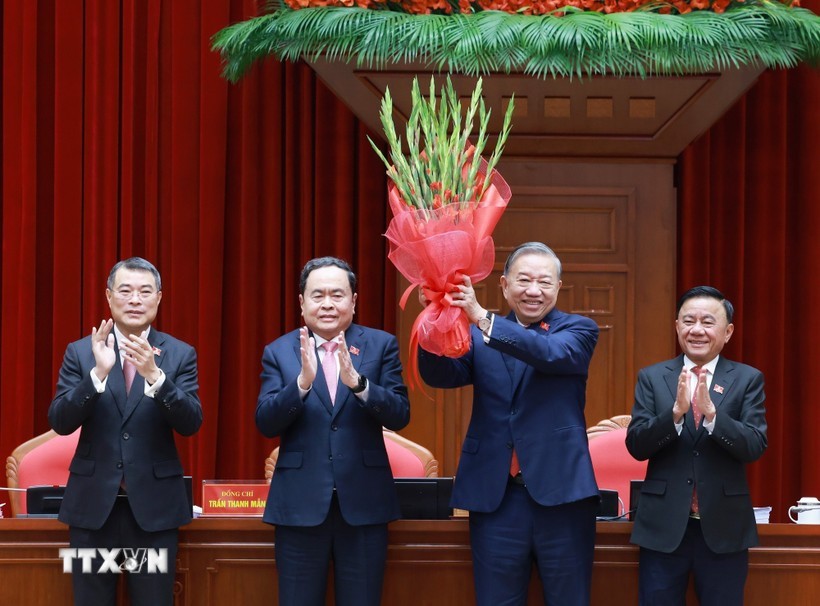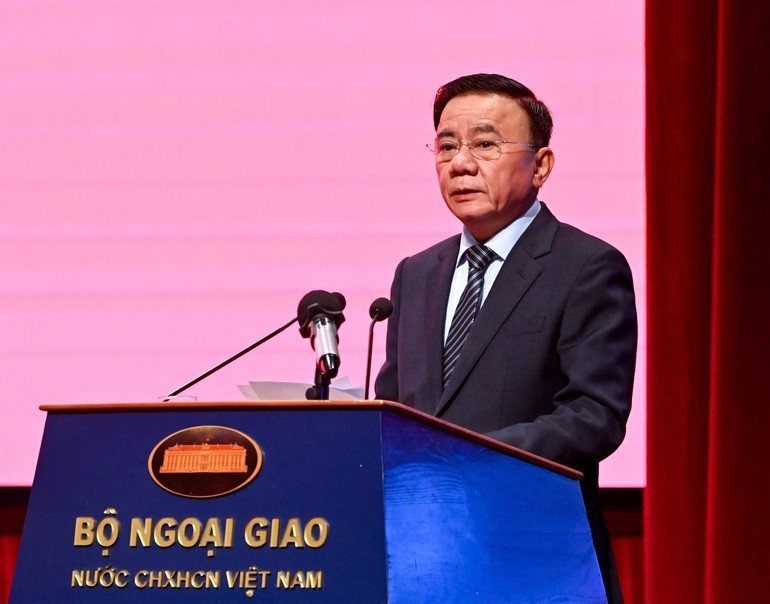Four Notable Outcomes of General Secretary To Lam’s Four-nation Tour
| Vietnam - Russia: Solid Foundation for Advancing Cooperation in New Era | |
| Overseas Vietnamese in Russia Welcome Vietnam People's Army Delegation at Red Square |
Deputy Prime Minister and Minister of Foreign Affairs Bui Thanh Son said:
At the invitation of President of Kazakhstan Kassym-Jomart Tokayev, President of Azerbaijan Ilham Aliyev, President of Russia Vladimir Putin, and President of Belarus Aleksandr Lukashenko, General Secretary To Lam, his spouse, and a high-level Vietnamese delegation conducted a successful working visit to the Republic of Kazakhstan, the Republic of Azerbaijan, the Russian Federation, and the Republic of Belarus from May 5 to 12, 2025.
In addition to opening a new chapter in cooperation with traditional friends of the former Soviet Union, the visit consolidated, refreshed, and redefined relations with these countries on the basis of long-standing friendship cultivated over generations of leaders and people from Vietnam and other countries.
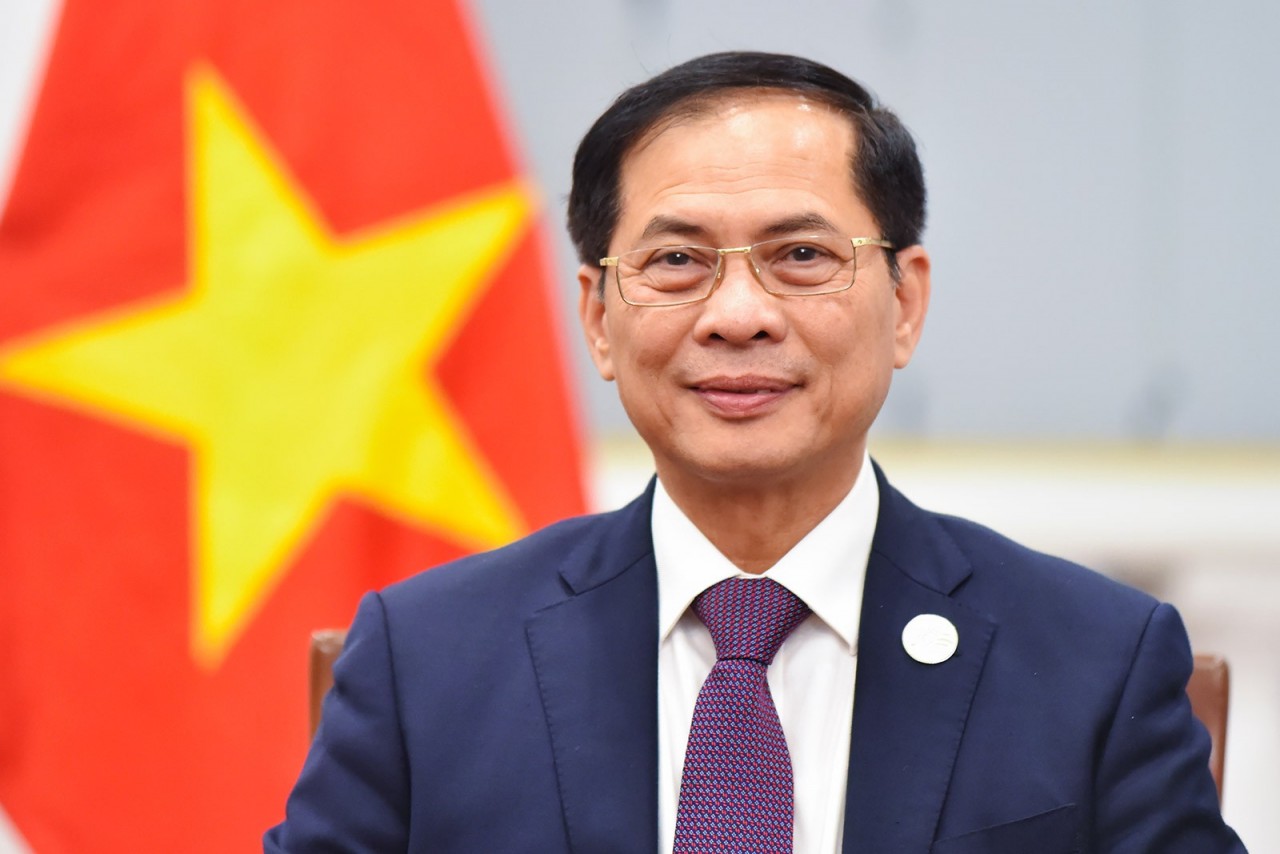 |
| Deputy Prime Minister and Minister of Foreign Affairs Bui Thanh Son. (Photo: Ministry of Foreign Affairs of Vietnam) |
The visit was also a special occasion to convey the enduring loyalty and consistent sentiments of the Party, State, and people of Vietnam toward countries that had wholeheartedly supported Vietnam's cause for national liberation and reunification in the past, and that continue to support the country’s current efforts in national construction and development. The leaders and people of the host countries extended to General Secretary To Lam, his spouse, and the Vietnamese delegation their sincere affection and warm, respectful hospitality, with many special gestures of goodwill.
During the eight-day visit, with more than 80 intensive and diverse activities across four countries, General Secretary To Lam held talks and meetings with top leaders of the host nations, met with political parties, various sectors, and business communities, visited several economic and cultural institutions, and met with the Vietnamese community in each country. He also attended the 80th Anniversary of the Victory in the Great Patriotic War in Russia and the 80th Anniversary of the Victory over Fascism in Kazakhstan, demonstrating Vietnam's respect for and tribute to the enormous sacrifices made by former Soviet countries in the fight against fascism, the end of world war, and the beginning of a new chapter in global revolutionary and national liberation movements, including Vietnam.
Leaders from relevant ministries, sectors, and localities who joined the delegation also held productive meetings with their counterparts in various fields. We take great pride in the fact that leaders and stakeholders in all four countries highly appreciated Vietnam's strong development achievements across all sectors under the leadership of the Communist Party and General Secretary To Lam, as well as the country’s dynamic and breakthrough reforms as it embarks on a new era of national advancement.
The visit yielded notable outcomes as follows:
First, the visit contributed to the implementation of Vietnam’s foreign policy of independence, self-reliance, peace, friendship, cooperation, and development; diversification and multilateralization of foreign relations; and proactive, comprehensive, and deep international integration. This is consistent with the directions set out by the 13th National Congress of the Communist Party of Vietnam, which emphasizes Vietnam as a trusted friend, partner, and responsible member of the international community. Vietnam elevated its relations to a Strategic Partnership with Kazakhstan, Azerbaijan, and Belarus, bringing the total number of Vietnam's strategic partners to 37. At the same time, the visit deepened the traditional friendship and Comprehensive Strategic Partnership with the Russian Federation, thereby further enhancing political trust and opening new avenues for cooperation in alignment with the scale of relations in the new era of development.
Second, General Secretary To Lam and the leaders of the host countries affirmed their high regard and priority for the traditional friendship, tempered over time and history, that has remained steadfast through past struggles for independence and in the current process of national development, especially amid an unpredictable global landscape. This spirit served as the “red thread” running through all engagements between General Secretary To Lam and Presidents Kassym-Jomart Tokayev (Kazakhstan), Ilham Aliyev (Azerbaijan), Vladimir Putin (Russia), and Aleksandr Lukashenko (Belarus).
Third, high-level meetings between General Secretary To Lam and the leaders of the four countries produced excellent results, shaping the future direction of bilateral relations. These outcomes provided new momentum not only for traditional cooperation frameworks but also for potential new areas of collaboration commensurate with the upgraded relationships. General Secretary To Lam and the host leaders agreed to enhance political trust through exchanges of delegations and contacts at all levels, especially high-level ones, and through various channels.
In the fields of economy, trade, and investment, the Intergovernmental Commission mechanism was recognized by the leaders as important, with a commitment to enhancing its effectiveness. This includes proposing concrete measures to realize signed agreements and striving to increase bilateral trade volumes to match the strong political relations. The business environment will also be significantly improved to support long-term, reciprocal investment and business operations.
In energy and mining, leaders agreed to promote cooperation in oil and gas exploration and services while jointly studying and proposing suitable solutions to enhance energy collaboration, including clean and renewable energy. Numerous concrete measures were proposed to foster substantive cooperation in areas such as security and defense, science and technology, digital transformation, education and training, high-tech agriculture, transport, logistics, culture, sports, tourism, labor, people-to-people exchange, and collaboration between localities.
Fourth, at the multilateral level, in the time ahead, closer cooperation between Vietnam and the four countries will be increasingly evident within regional and international organizations, especially within the framework of the United Nations and other institutions. General Secretary To Lam and the leaders emphasized the importance of maintaining peace, security, and stability in each region, as well as resolving disputes through peaceful means based on the UN Charter and international law, including the 1982 UN Convention on the Law of the Sea (UNCLOS).
Within the framework of the visit, Vietnam and Kazakhstan, Azerbaijan, the Russian Federation, and Belarus signed around 60 cooperation agreements between ministries, sectors, and enterprises across a wide range of fields, including diplomacy, security and defense, science and technology, energy, education and training, and aviation. These agreements provide an essential legal framework for advancing bilateral relations in a deeper, more practical, and effective direction.
On the occasion of the 80th Anniversary of the Victory in the Great Patriotic War, General Secretary To Lam also held meetings with heads of state and leaders of other countries to exchange views on priority areas for developing relations. The leaders extended congratulations to Vietnam for its successful celebration of the 50th anniversary of national reunification and its comprehensive development achievements.
To effectively implement the significant outcomes achieved during the visit, Deputy Prime Minister and Minister of Foreign Affairs Bui Thanh Son stated that in the time ahead, Vietnam and its partners will coordinate closely, in line with the spirit of the Joint Statements, cooperation agreements, and shared understandings reached by senior leaders, with a focus on the following key areas:
First, maintaining regular exchanges of delegations and high-level contacts at all levels across all channels, including promoting cooperation between political parties and enhancing positive and effective coordination between the governments and parliaments of the countries involved. At the same time, efforts will be made to strengthen the role of the Intergovernmental Committees between Vietnam and its partners. Through these efforts, Vietnam and other countries will sustain the positive momentum in bilateral relations, further consolidate and enhance political trust, and deepen the long-standing traditional friendship.
Second, effectively implementing cooperation mechanisms and elevating substantive cooperation across all fields. Following the visit, working-level exchanges between Vietnam and its partners will actively engage in discussions and coordination to concretize the signed cooperation documents. In line with the spirit of the Joint Statements and shared understandings of senior leaders, Vietnam and its partners will jointly agree on specific solutions to improve cooperation effectiveness, including strengthening the operation of bilateral cooperation mechanisms and developing measures to resolve remaining issues.
In terms of economy, trade, and investment, Vietnam will collaborate with its partners both bilaterally through intergovernmental committee mechanisms and multilaterally, such as within the framework of the Eurasian Economic Union (EAEU), to improve the business environment and facilitate long-term investment and business operations in each other’s markets. Vietnam and its partners will also explore and research ways to expand and diversify import-export goods, while developing multimodal transportation and logistics connectivity to boost trade promotion, commensurate with the potential and strengths of each side.
Ministries, sectors, localities, and enterprises of Vietnam and its partners will engage in joint discussions and research to expand existing cooperation projects in traditional fields such as energy, oil and gas, industry, agriculture, transportation, and railway and aviation connectivity. Simultaneously, efforts will be made to gradually develop and implement cooperation projects in new areas such as clean energy, renewable energy, science and technology, digital transformation, and artificial intelligence.
Third, strengthening people-to-people exchanges between Vietnam and other countries through cultural, academic, educational, tourism, and other activities, thereby reinforcing the strong human foundation of bilateral relations. Vietnam’s Party and State will continue to support the lives of overseas Vietnamese communities, while also facilitating opportunities for foreign citizens to study, work, and travel in Vietnam. These initiatives will help future generations understand and continue to serve as bridges in nurturing the long-standing, historic friendship between Vietnam and other countries.
Fourth, maintaining coordination, cooperation, and mutual support in multilateral mechanisms and forums, especially the UN. Building on the foundation of traditional friendship and strong trust, Vietnam will actively exchange views with its partners on regional and international issues of mutual concern, thereby contributing together to peace, stability, and cooperation in the region and globally. Vietnam is willing to serve as a bridge for other countries to enhance cooperation with ASEAN and the Southeast Asian region, and hopes that its partners will help connect Vietnam with other regions of the world.
“The outcomes achieved during the visits will serve as an important foundation, a driving force, and a source of inspiration for Vietnam and its partners to continue inheriting, promoting, and elevating the traditional friendship, thereby contributing to the development of each country, for the benefit of the people, and for peace, cooperation, and development in the region and around the world,” stated Deputy Prime Minister and Minister of Foreign Affairs Bui Thanh Son.
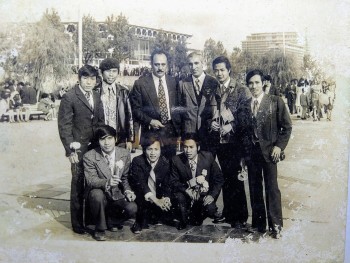 | Vietnam - Azerbaijan: Cherished Memories Should Be Carried Forward with New Achievements On the occasion of General Secretary To Lam’s official visit to four of Vietnam’s traditional partner countries, including Azerbaijan, Thoi Dai magazine spoke with Dr ... |
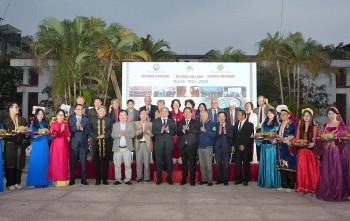 | Strong Bonds Between Vietnam And Belarus, Azerbaijan, and Kazakhstan Once considered a "cradle" for training generations of Vietnamese officials and students, traditional friendly countries of the former Soviet Union, such as Belarus, Azerbaijan, and ... |
Recommended
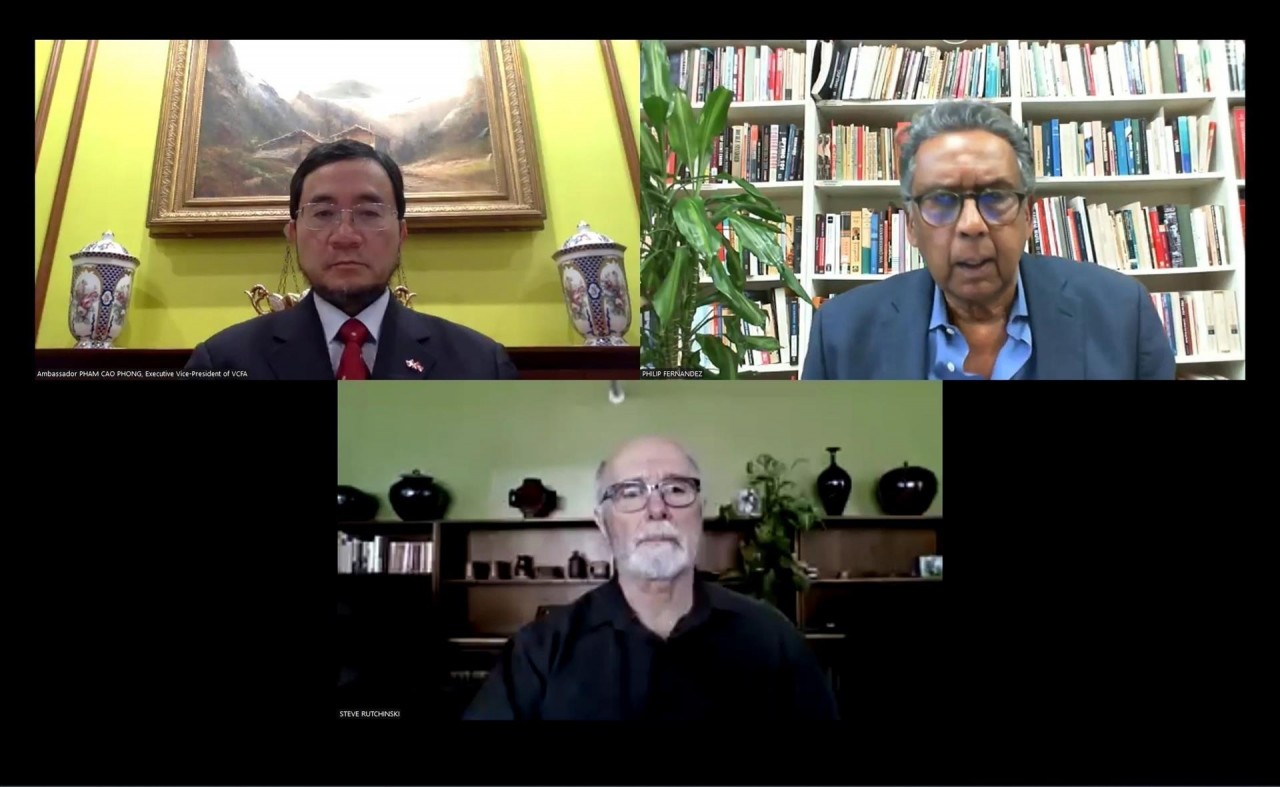 National
National
Canadian Friends Highlight Significance of 14th National Congress of Communist Party of Vietnam
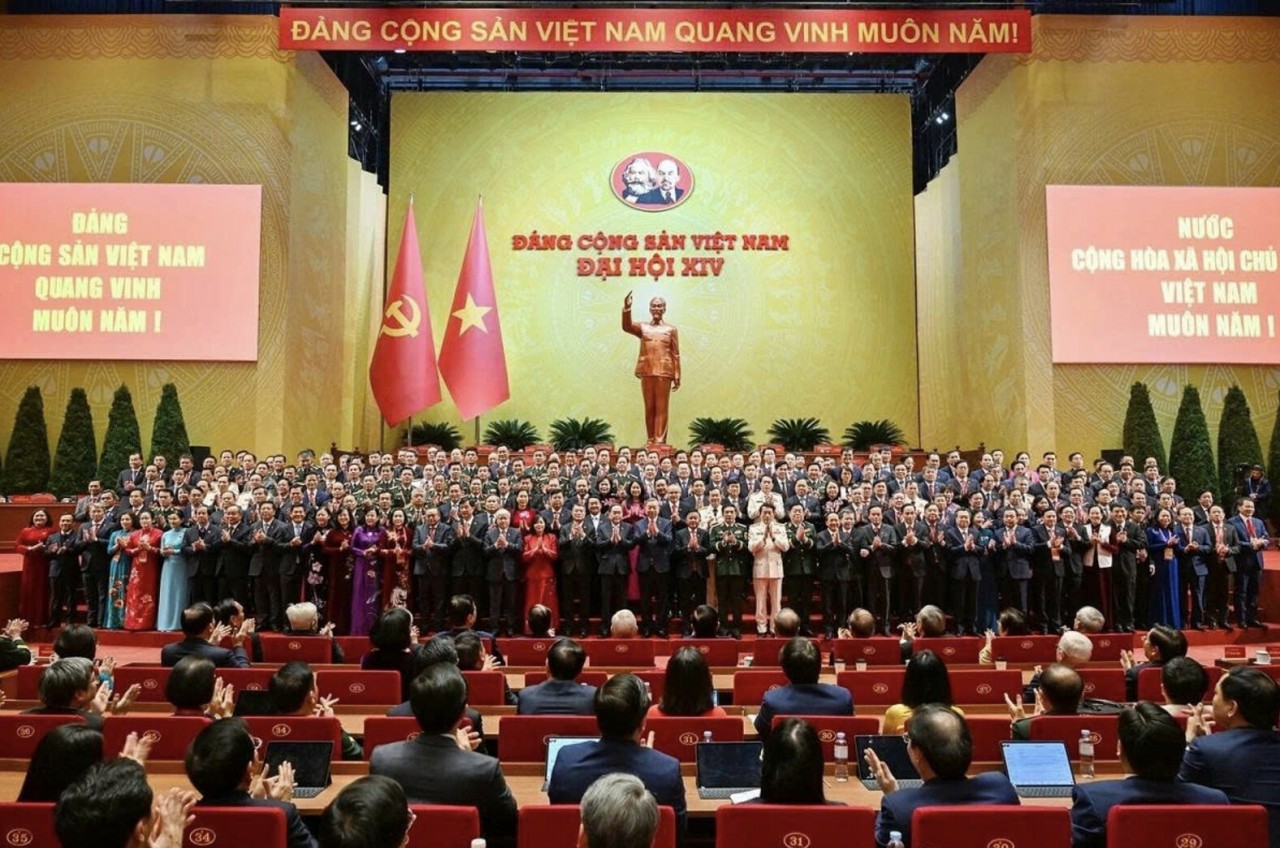 National
National
14th National Congress Through Lens of International Press: Stability and Aspirations for Development
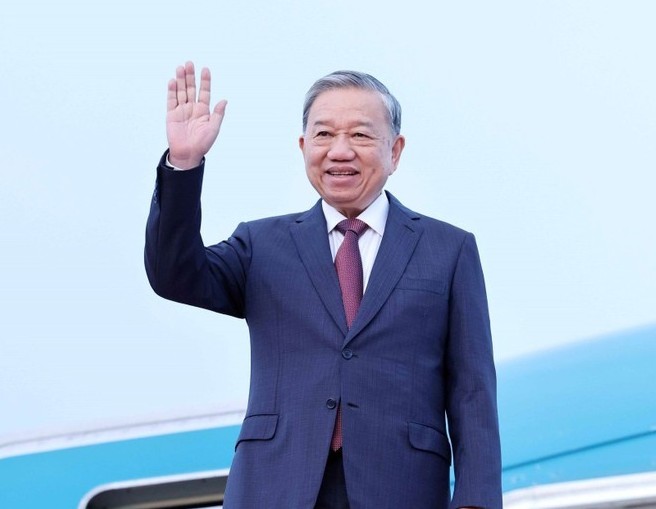 National
National
Vietnam News Today (Feb. 5): Party Leader's Visit Expected to Open New Chapter in Vietnam–Cambodia Friendship
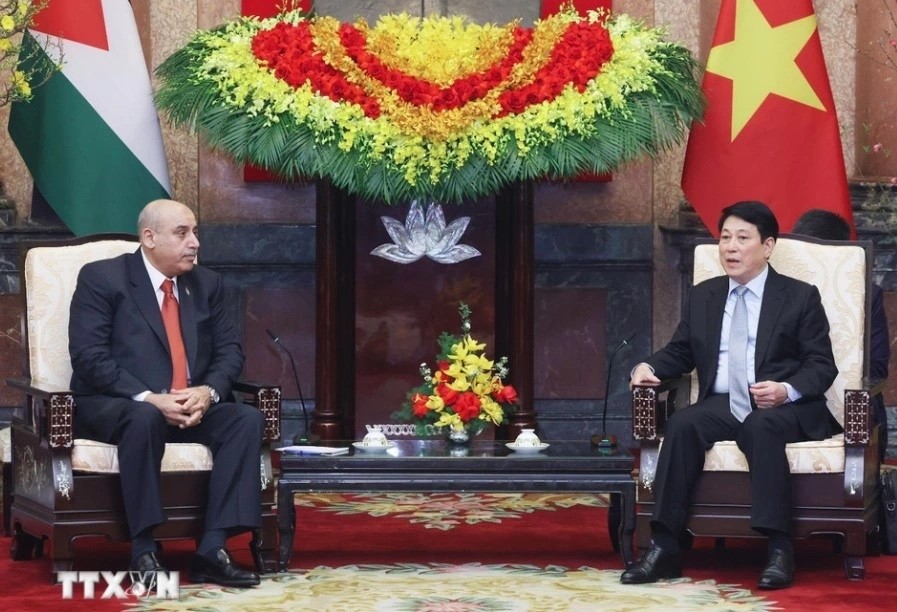 National
National
Vietnam News Today (Feb. 4): President Luong Cuong Hosts Jordanian House Speaker in Hanoi
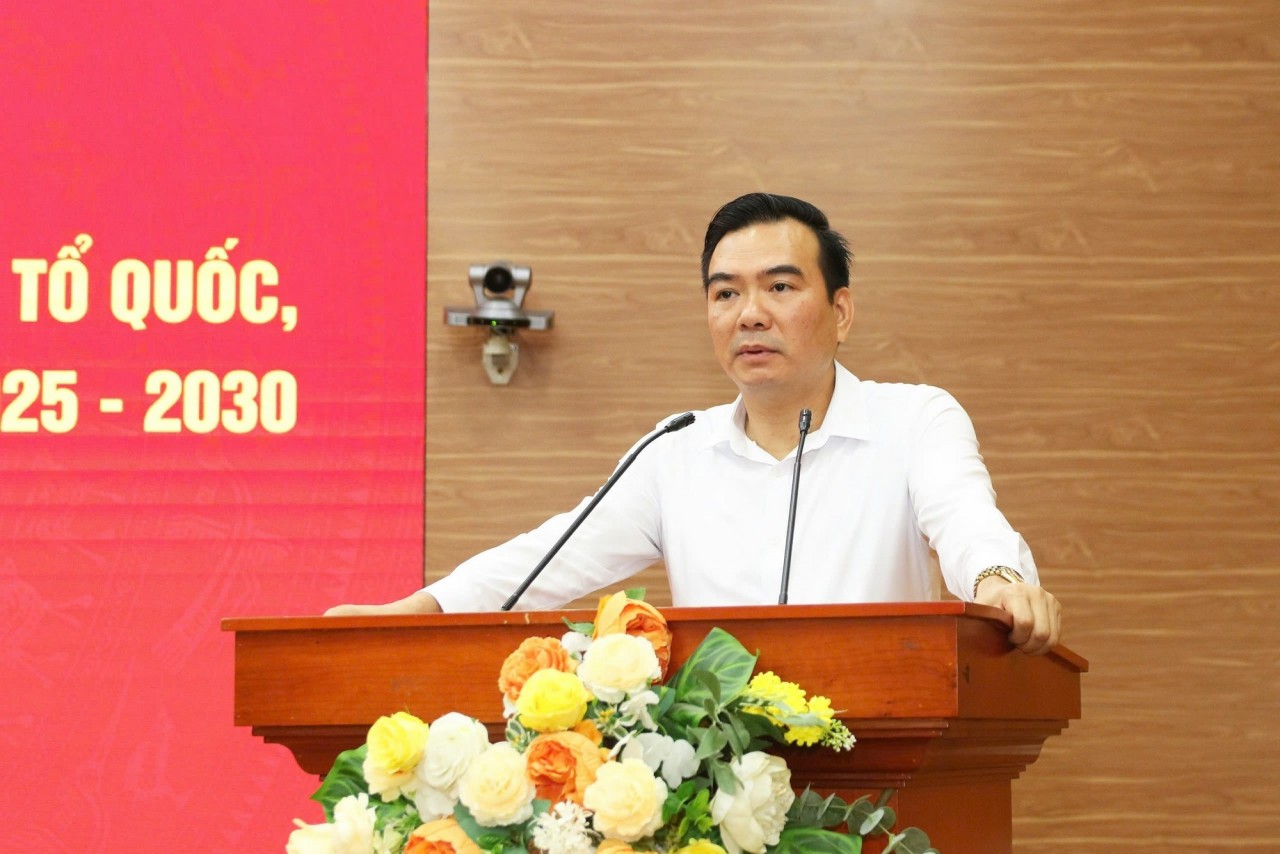 National
National
Party Committee of Viet Nam Fatherland Front and Central Mass Organizations Will Become Strong Pillar of Political System
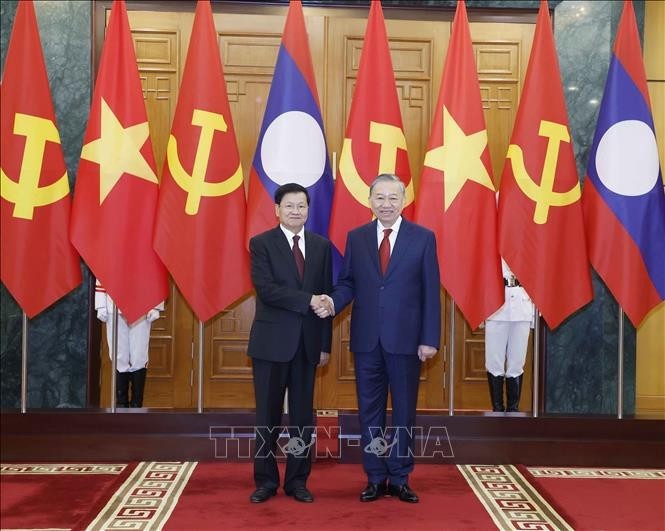 National
National
Vietnam News Today (Feb. 3): Vietnam–Laos Ties Set for Reshape to New Phase of Cooperation and Development
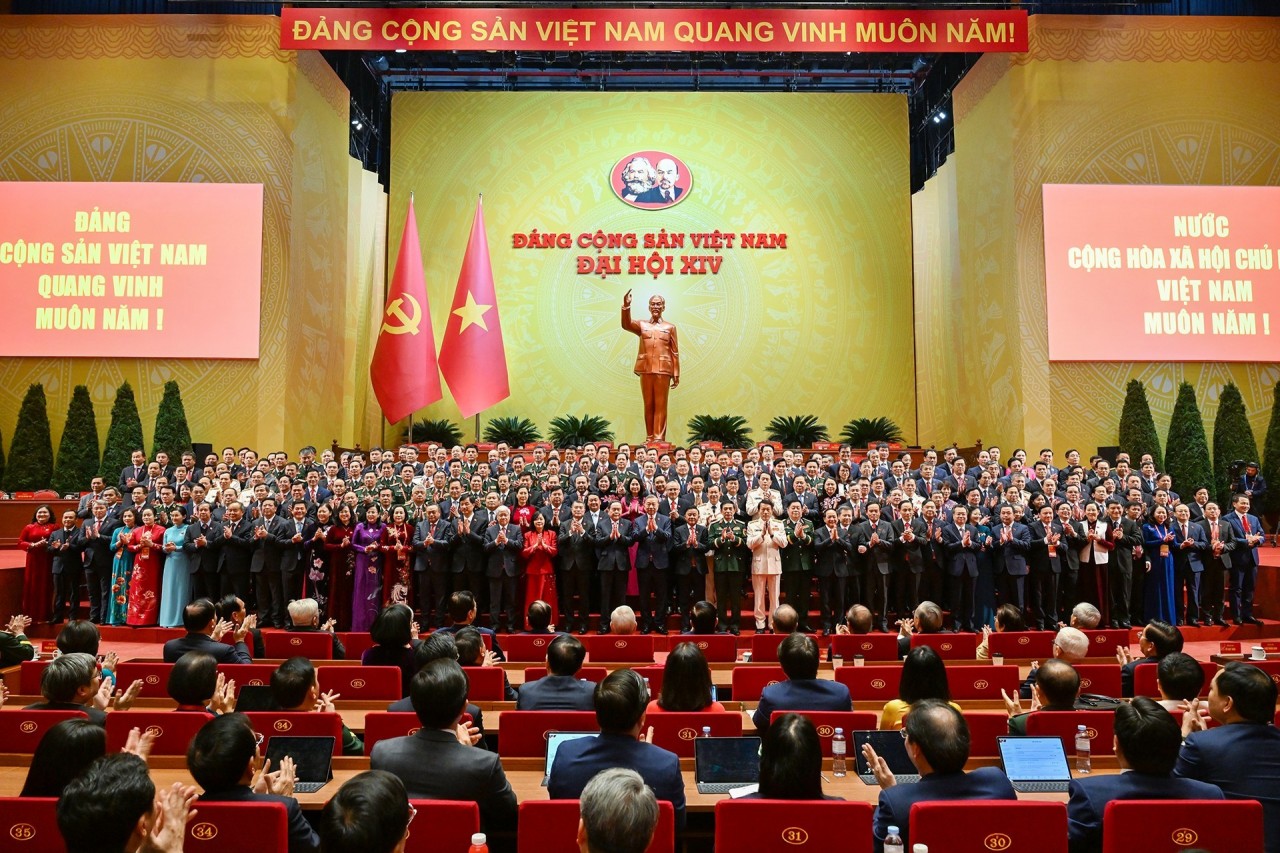 National
National
Unity and Determination to Achieve Historic Feats
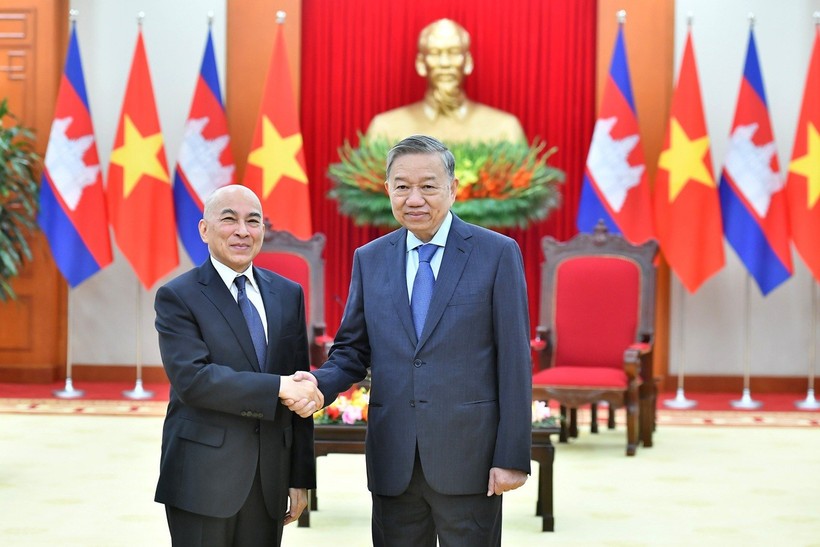 National
National

